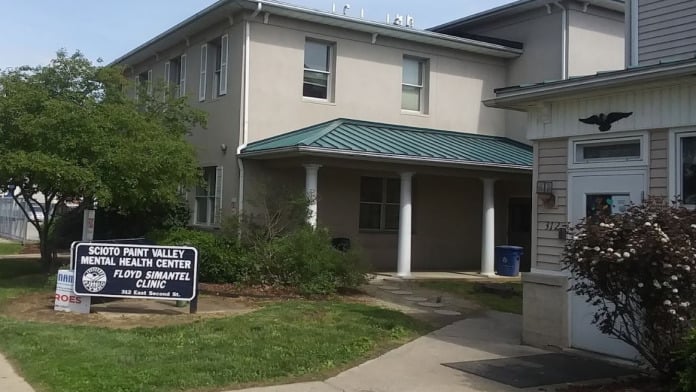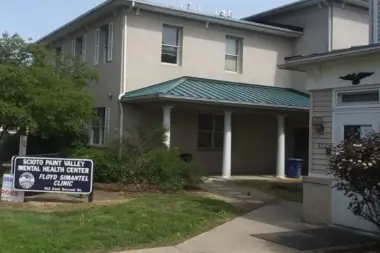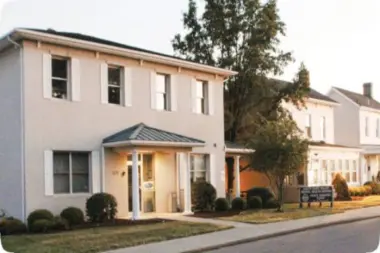As long person wouldn't have go Pike county , deprivation rights under color of law,the other medication happens cause adverse effect,even medical doctor drop person as patient,once in records, discrimination,threats,staff all paint valley adamh board facilities will do
About Scioto Paint Valley Mental Health Center – Floyd Simantel Clinic
The Floyd Simantel Clinic is an 18-bed OhioMHAS Class 1 residential mental health facility with transitional housing in Chillicothe, Ohio. They’re one of many residential treatment facilities operated by Scioto Paint Valley Mental Health Center (SPVMHC).
Services for People with Mental Illness and People in the Court System
This particular clinic was founded to help clients move from psychiatric hospitals to a safe and stable living environment. The residential facility serves men and women with ongoing psychiatric issues including those with mild to moderate addiction along with their mental illness.
The facility aims to address the mental health and substance use recovery needs of such individuals as they navigate recovery. They also offer forensic services or programs tailored to individuals involved in the criminal justice system. They may support community reintegration by addressing mental health and substance use issues leading to legal involvement.
Floyd Simantel Clinic is situated on East 2nd Street in downtown Chillicothe, a minute walk from Yoctangee Park within Ross County. The location is just a mile west of US Route 23, offering direct route access for patients from nearby Waverly, Circleville and Columbus.
Building Skills for Long-Term Stability
The Floyd Simantel Clinic helps clients build independent living skills that promote lasting stability via their transitional housing or supportive living program. Services include counseling, group therapy and daily life skills training to foster independence. They may also offer recovery-focused activities and community support programs like life skills workshops, job readiness training and peer support groups. Case managers assist with housing, employment and personal goals as you move forward.
Facility Overview
Latest Reviews
Rehab Score
Gallery




Other Forms of Payment
Medicaid is a state based program that helps lower-income individuals and families pay for healthcare. Medicaid covers addiction treatment so those enrolled can use their coverage to pay for rehab. When a program accepts Medicaid the client often pays very little or nothing out of their own pocket.
Private insurance refers to any kind of healthcare coverage that isn't from the state or federal government. This includes individual and family plans offered by an employer or purchased from the Insurance Marketplace. Every plan will have different requirements and out of pocket costs so be sure to get the full details before you start treatment.
Self-pay involves paying for treatment out of your own pocket. You can use savings or credit, get a personal loan, or receive help from family and friends to fund your treatment. If you don't have insurance or your insurance plan doesn't cover a specific program, self-pay can help ensure you still get the care you need.
Sliding scale payments are based on a client's income and family size. The goal is to make treatment affordable to everyone. By taking these factors into account, addiction recovery care providers help ensure that your treatment does not become a financial burden to you or your family, eliminating one barrier to care.
Medicare is a federal program that provides health insurance for those 65 and older. It also serves people under 65 with chronic and disabling health challenges. To use Medicare for addiction treatment you need to find a program that accepts Medicare and is in network with your plan. Out of pocket costs and preauthorization requirements vary, so always check with your provider.
Military members, veterans, and eligible dependents have access to specific insurance programs that help them get the care they need. TRICARE and VA insurance can help you access low cost or no cost addiction and mental health treatment. Programs that accept military insurance often have targeted treatment focused on the unique challenges military members, veterans, and their families face.
Financial aid can take many forms. Centers may have grants or scholarships available to clients who meet eligibility requirements. Programs that receive SAMHSA grants may have financial aid available for those who need treatment as well. Grants and scholarships can help you pai for treatment without having to repay.
Addiction Treatments
Levels of Care
Behavioral Health Counseling & Therapy (formerly Counseling and Psychotherapy) involves face-to-face interventions with individuals, couples, families and groups. Children and adolescents are included and may be seen individually or in groups. Parents, guardians or significant others may be seen together with children (and adolescents) or independently as is specified in the Individualized Service Plan.
Residential Treatment Services provide 24 hour intensive programming for adults consistent with the individual needs in a safe, structured environment. Services are designed to provide an alternative to psychiatric hospitalization and to assist individuals in developing the skills required for independent community living. Residential treatment services are provided at the Floyd Simantel Clinic in Chillicothe.
Substance Abuse Intensive Outpatient means structured individual and group alcohol and drug addiction activities and services that are provided at a certified treatment program site for a minimum of eight hours per week with services provided at least three days per week.
Completing a drug or alcohol rehab program shouldn't spell the end of substance abuse treatment. Aftercare involves making a sustainable plan for recovery, including ongoing support. This can include sober living arrangements like halfway houses, career counseling, and setting a patient up with community programs like Alcoholics Anonymous (AA) or Narcotics Anonymous (NA).
Transitional Services are designed to assist severely mentally ill adults to make a successful transition to the least restrictive living situation. Individuals are assisted to access the community living situation that best suits their needs including independent living, supervised living or residential care.
Treatments
The goal of treatment for alcoholism is abstinence. Those with poor social support, poor motivation, or psychiatric disorders tend to relapse within a few years of treatment. For these people, success is measured by longer periods of abstinence, reduced use of alcohol, better health, and improved social functioning. Recovery and Maintenance are usually based on 12 step programs and AA meetings.
Drug rehab in Ohio provides comprehensive treatment to address the physical and psychological needs of those struggling with substance use disorders. This may involve inpatient and/or outpatient care.
Many of those suffering from addiction also suffer from mental or emotional illnesses like schizophrenia, bipolar disorder, depression, or anxiety disorders. Rehab and other substance abuse facilities treating those with a dual diagnosis or co-occurring disorder administer psychiatric treatment to address the person's mental health issue in addition to drug and alcohol rehabilitation.
A combined mental health and substance abuse rehab has the staff and resources available to handle individuals with both mental health and substance abuse issues. It can be challenging to determine where a specific symptom stems from (a mental health issue or an issue related to substance abuse), so mental health and substance abuse professionals are helpful in detangling symptoms and keeping treatment on track.
Opioid rehabs specialize in supporting those recovering from opioid addiction. They treat those suffering from addiction to illegal opioids like heroin, as well as prescription drugs like oxycodone. These centers typically combine both physical as well as mental and emotional support to help stop addiction. Physical support often includes medical detox and subsequent medical support (including medication), and mental support includes in-depth therapy to address the underlying causes of addiction.
Programs
Adult rehab programs include therapies tailored to each client's specific needs, goals, and recovery progress. They are tailored to the specific challenges adult clients may face, including family and work pressures and commitments. From inpatient and residential treatment to various levels of outpatient services, there are many options available. Some facilities also help adults work through co-occurring conditions, like anxiety, that can accompany addiction.
Young adulthood can be an exciting, yet difficult, time of transition. Individuals in their late teens to mid-20s face unique stressors related to school, jobs, families, and social circles, which can lead to a rise in substance use. Rehab centers with dedicated young adult programs will include activities and amenities that cater to this age group, with an emphasis on specialized counseling, peer socialization, and ongoing aftercare.
Clinical Services
Whether a marriage or other committed relationship, an intimate partnership is one of the most important aspects of a person's life. Drug and alcohol addiction affects both members of a couple in deep and meaningful ways, as does rehab and recovery. Couples therapy and other couples-focused treatment programs are significant parts of exploring triggers of addiction, as well as learning how to build healthy patterns to support ongoing sobriety.
Creativity is inherently healing, and can help those in recovery express thoughts or feelings they might not otherwise be able to. Creative arts therapy can include music, poetry/writing, painting, sculpting, dance, theater, sandplay, and more. Unlike traditional art, the final product matters far less than the experience of creation and expression itself.
Experiential therapy is a form of therapy in which clients are encouraged to surface and work through subconscious issues by engaging in real-time experiences. Experiential therapy departs from traditional talk therapy by involving the body, and having clients engage in activities, movements, and physical and emotional expression. This can involve role-play or using props (which can include other people). Experiential therapy can help people process trauma, memories, and emotion quickly, deeply, and in a lasting fashion, leading to substantial and impactful healing.
Substance Abuse Family counseling means the utilization of special skills in sessions with individuals and their family members and/or significant others under the guidance of a counselor to address family and relationship issues related to alcohol and other drug abuse and/or dependence for the purpose of promoting recovery from addiction.
Substance Abuse Group Counseling means the utilization of special skills to assist two or more individuals in achieving treatment objectives through the exploration of alcohol and other drug problems and/or addiction and their ramifications, including an examination of attitudes and feelings, consideration of alternative solutions and decision making and/or discussing information related to alcohol and other drug related problems.
Counseling means the utilization of special skills to assist an individual in achieving treatment objectives through the exploration of alcohol and other drug problems and/or addiction and their ramifications, including an examination of attitudes and feelings, consideration of alternative solutions and decision making and/or discussing didactic materials with regard to alcohol and other drug related problems.
Employment/Vocational Services have the purpose and intent to promote recovery by assisting people in securing and/or maintaining employment by providing training and skill development that is goal oriented, ability based and incorporates individual choice. Anticipated outcomes of the service include the consumer obtaining and/or maintaining employment, learning new job skills, increasing self-sufficiency and contributing to the community.
Motivational Interviewing (MI) is a clinical approach to helping people with substance abuse issues and other conditions shift behavior in positive ways. It is more goal-oriented than traditional psychotherapy, as MI counselors directly attempt to get clients to consider making behavioral change (rather than wait for them to come to conclusions themselves). Its primary purpose is to resolve ambivalence and help clients become able to make healthy choices freely.
Nicotine Replacement Therapy (NRT) is a way of getting nicotine into the bloodstream without smoking. It uses products that supply low doses of nicotine to help people stop smoking. The goal of therapy is to cut down on cravings for nicotine and ease the symptoms of nicotine withdrawal.
Trauma therapy addresses traumatic incidents from a client's past that are likely affecting their present-day experience. Trauma is often one of the primary triggers and potential causes of addiction, and can stem from child sexual abuse, domestic violence, having a parent with a mental illness, losing one or both parents at a young age, teenage or adult sexual assault, or any number of other factors. The purpose of trauma therapy is to allow a patient to process trauma and move through and past it, with the help of trained and compassionate mental health professionals.
Amenities
-
Residential Setting
-
Private Setting
Accreditations

The Commission on Accreditation of Rehabilitation Facilities (CARF) is a non-profit organization that specifically accredits rehab organizations. Founded in 1966, CARF's, mission is to help service providers like rehab facilities maintain high standards of care.
CARF Accreditation: Yes
Contact Information
312 East 2nd Street
Chillicothe OH, 45601